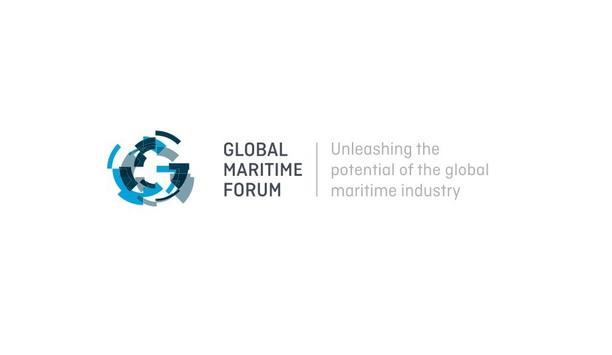Global Maritime Forum News
The latest Neptune Indicator research shows that the number of seafarers onboard vessels beyond the expiry of their contract has decreased slightly to 4.2% from 4.3% in the last month, while the number of seafarers onboard vessels for over 11 months has remained stable at 0.3%. For the eighth consecutive month, Global Maritime Forum observe little change in the numbers reported, as it confirm the entry into a ‘new normal’. The Neptune Indicator also reports a 2.8 percentage point in...
A global pandemic, the war in Europe since 1945, rising temperatures caused by climate change, and severe disruptions to global supply chains have created new uncertainties for the maritime sector. The Global Maritime Forum’s Annual Summit will bring together top decision-makers, thought providers, and experts from across the maritime spectrum and beyond, to make sense of what these challenges mean for the maritime industry and to collectively identify ways in which they can take action t...
What should maritime stakeholders focus on in the coming years to accelerate maritime decarbonisation? At this week’s Getting to Zero Coalition Workshop, participating Coalition members collaborated on detailing out an action plan to make the full decarbonisation of shipping concrete and tangible. Participants focused on the combination and acceleration of four change levers: technology on land and on board, mobilising demand, financing, and policy. Accelerating shipping decarbonisation...
Ship charterers and operators representing over 15% of total bulk cargo transported by sea in 2021 deliver on their commitment to the Sea Cargo Charter, a global framework for aligning ship chartering activities with society’s goals. Signatories to the Sea Cargo Charter commit to measuring and publicly disclosing the alignment of their chartering activities with the ambition to reduce total GHG emissions from international shipping by at least 50% by 2050, as set out by the International...
The latest Indicator shows that the number of seafarers onboard vessels beyond the expiry of their contract has decreased slightly to 4.3% from 4.5% in the last month, while the number of seafarers onboard vessels for over 11 months has remained stable at 0.3%. These numbers remain very close to what has been reported since December 2021, confirming a stabilisation of the situation. Neptune Indicator The Neptune Indicator also reports a 2.8 percentage point increase in seafarer vaccines, from...
International shipping accounts for approximately 3% of global Greenhouse Gas (GHG) emissions, and this will increase in a business-as-usual scenario. To decarbonise the maritime industry, there will be a massive need for green fuels and associated technologies. In particular, scalable zero-emission fuels (SZEFs) such as green hydrogen and green ammonia are considered the most promising fuels for the industry’s transition. Due to its large renewable capacity and unique location sitting at...
In Zurich, industry pioneers from across the global maritime value chain came together to launch the All Aboard Alliance, which will provide a platform for collaborative action to make the maritime industry more diverse, equitable, and inclusive. Global seaborne trade The backdrop for setting up the All Aboard Alliance is the fact that global seaborne trade relies on millions of people working in the maritime sector on shore and at sea. In the aftermath of the COVID-19 pandemic and in light o...
Over the next months, the European Union (EU) is introducing a range of policy and regulatory proposals related to the shipping industry as part of the ‘Fit for 55’ package. The package is aimed at achieving the decarbonisation goals set out in the European Green Deal. The newly published Getting to Zero Coalition Insight Brief – 'How EU Contracts for Difference can support zero-emission fuels' – outlines how the EU could use shipping-related Emissions Trading System (ET...
The May Crew Change Indicator records a tiny increase in seafarers onboard vessels beyond their contract expiry since April, but overall does not indicate that the fears of a re-escalation of the crew change crisis due to the war in Ukraine have been fulfilled. May Indicator The latest Indicator shows that the number of seafarers onboard vessels beyond the expiry of their contract has increased slightly from 4.2% to 4.5% in the last month, while the number of seafarers onboard vessels for over...
International not-for-profit organisation Global Maritime Forum announces the new composition of its Board of Directors, following annual general meeting. Jan Dieleman, President, of Ocean Transportation at Cargill was elected as the new Chair of the Board of Directors, taking over the position from Peter Stokes, former Senior Adviser and Head of Shipping at Lazard, who is retiring. Author's quote “I am honoured to accept the role as Chair of the Global Maritime Forum. Peter has made gre...
A consortium, led by the Global Maritime Forum. and consisting of BHP, Rio Tinto, Oldendorff Carriers, and Star Bulk Carriers Corp., have signed a letter of intent (LOI) to assess the development of an iron ore Green Corridor between Australia and East Asia. To mobilise demand for green shipping and to scale zero- or near-zero greenhouse gas emission shipping, governments and industry decision-makers are increasingly looking to enable and simplify the task of decarbonising the maritime sec...
The latest Indicator shows that the number of seafarers onboard vessels beyond the expiry of their contract has decreased slightly from 5% from 4.2% in the last month, while the number of seafarers onboard vessels for over 11 months has remained stable at 0.4%. This is the first decrease in numbers, albeit slight, since December 2021. The Neptune Indicator also reports a 4.4 percentage point increase in seafarer vaccines, from 72.8% in March to 77.2% in April, as seafarer vaccinations have sta...
